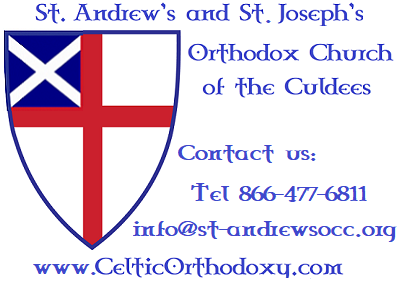The recognition of sacramental validity within the Western Church prior to the Great Schism of 1054 is an important historical fact that sheds light on current debates over Orthodox-Catholic relations. The Orthodox Church today recognizes that England and its kings were Orthodox before the Norman invasion (which coincided with the Great Schism). This acknowledgment challenges modern Orthodox critics who question the validity of Western sacraments.
Historical Recognition of Western Orthodoxy
Before the Schism, Western Christianity was fully integrated within the larger Orthodox Church. The division between East and West was not sudden but developed gradually, with many Western churches continuing to view themselves as Orthodox even after Rome asserted its primacy.
Even after 1054, many regions in the West resisted integration with the Roman Papacy. The Gallican and Celtic Rites maintained distinctive traditions that were often at odds with Roman centralization. Likewise, in Germany, there were consistent conflicts with the Papacy, centuries before the Protestant Reformation. These conflicts reflected not just political power struggles but theological and ecclesiastical resistance to what many in the West saw as an overreach by Rome.
Pope Gregory’s 6th-century correspondence with St Augustine reveals that the churches of Gaul and Britain held a patriarchal early status, equal to what was later formalized as “patriarchate” by Canon 3 of the Second Ecumenical Council (Constantinople, 381 AD): “The Bishop of Constantinople, however, shall have the prerogative of honor after the Bishop of Rome; because Constantinople is New Rome.” This canonical framework shaped the eastern understanding of hierarchy, while in the West, older churches such as Glastonbury held even more ancient and authoritative titles, being referred to as the “Second Rome” and the “fountain and origin of all region.”
Resistance to Papal Primacy and the Continuity of Orthodox Sacraments
Western Christians who resisted papal supremacy often considered themselves adherents of the original Orthodox faith. The Anglican Church, for example, has long maintained that its 16th-century reforms were a return to the original, undivided Orthodoxy of the early Church. Similarly, the Lutheran Reformation can be viewed as an attempt to restore authentic early Christian practices, rejecting what it saw as later Roman innovations.
Furthermore, throughout history, there have been mutual communion agreements between certain Orthodox and Western Christian groups, recognizing the continuity of Apostolic Succession and sacramental validity. Monastic orders such as the Benedictines, which predate the Schism, continued their traditions uninterrupted, often maintaining a theology and spirituality that closely resembled Eastern Orthodox monasticism.
The Canonicity of the British Liturgy
A key historical recognition of Western Orthodox validity lies in the English liturgical tradition, specifically the Book of Common Prayer (BCP). Rooted in the Sarum Liturgy, the BCP retained many Orthodox elements and was acknowledged by the Russian Orthodox Church. Bishop Tikhon of Moscow and the Russian Synod (1904–1907) formally recognized its canonicity, confirming its legitimacy within the Orthodox framework. This recognition suggests that Western liturgical traditions, when properly rooted in apostolic succession, remain valid within Orthodoxy.
Confirmation and Chrismation in the Context of Sacramental Validity
The practice of confirmation, known as chrismation in the East, remains an integral sacrament across Christian traditions. While Orthodox bishops may choose to reconfirm Western converts, this is at their discretion rather than a strict requirement. Many Orthodox jurisdictions recognize prior confirmations based on certificates or inter-communion agreements.
For example, St. Andrew’s OCC and other traditional Western Orthodox jurisdictions maintain inter-communion networks, wherein Orthodox and Roman clergy may administer sacraments to each other’s visiting members, even if they are not in full communion. Similarly, the Russian Orthodox Church recognized the canonicity of the English BCP Liturgy, which itself contains a valid confirmation rite rooted in the Sarum Missal. These historical recognitions reinforce that Western sacramental practices, when performed in accordance with apostolic tradition, are valid within the broader Orthodox framework.
Modern Orthodox Recognitions
In modern times, several Orthodox jurisdictions have formally recognized the validity of episcopal ordinations and sacramental life within certain Western Orthodox churches. A notable example is the Letter of Recognition from His Beatitude Nicholas VI, Greek Orthodox Patriarch of Alexandria (served 1968–1986), affirming the legitimacy of episcopal ordinations in America:
“…after carefully studying the various documents placed at their disposal, [the Synod] was pleased to declare our Episcopal Ordinations as valid and Canonical for the existent conditions in America.” (View document)
This recognition affirmed the status of these bishops as equal in standing to those of the broader Orthodox communion. These bishops went on to consecrate and co-consecrate others, including Rev. Dr. Stephen MK Nott-Brunswick and various clergy within the Celtic Orthodox Church. Their succession is supported not only by Old Catholic and Anglican lines, but now by documented Orthodox recognition.
Political vs. Theological Disagreements
Many historical disputes between Eastern and Western Christianity have been more political or geopolitical than purely theological. While theological differences such as the Filioque controversy and papal infallibility remain significant, the underlying ecclesiastical traditions of both churches share common roots. The persistence of Orthodox elements within the Western Church, despite political disputes, suggests that the division was not as clear-cut as some modern commentators assert.
Conclusion
The recognition of pre-Schism Western Christianity as fully Orthodox challenges modern perspectives that rigidly separate East and West. Given the historical continuity of Orthodox practices within the West, the validity of Western sacraments should not be lightly dismissed. Recognizing this shared heritage—including modern recognitions from senior Orthodox hierarchs—can foster greater understanding and dialogue between Orthodox and Catholic Christians today.
